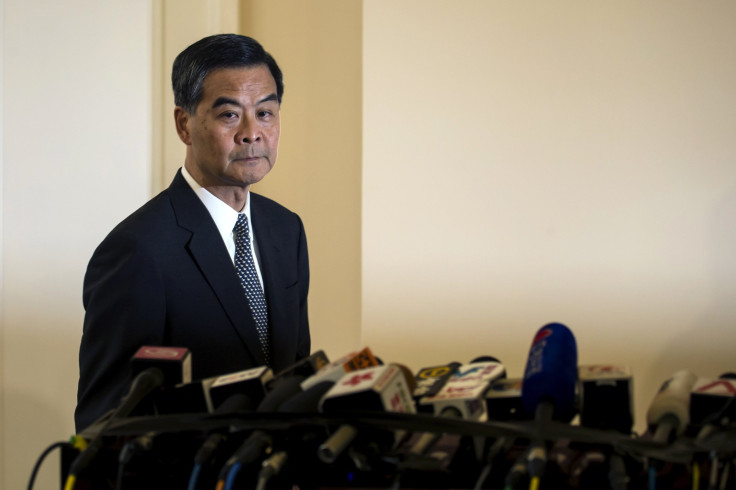Hong Kong Protests: Leung Chun-ying Agrees To Open Talks With Student Demonstrators

Hong Kong's leader Leung Chun-ying told a press conference Thursday that his administration is willing to enter into political reform talks with student protesters. Negotiations could begin as early as next week, he said.
"Over the last few days, including this morning through third parties, we expressed a wish to the students that we would like to start a dialogue to discuss universal suffrage as soon as we can and hopefully within the following week," Leung told the media.
Proposed talks between the government and protesters were scheduled to begin on Oct. 10, but were called off by the government, after Chief Secretary Carrie Lam said that constructive dialogue with protesters was not possible.
Leung said that the protests, which have paralyzed key thoroughfares in the city for over two weeks, had “severely affected Hong Kong society,” and said that police had shown “maximum tolerance” in dealing with the protesters.
Leung also proposed starting a second public consultation on political reform. He stressed, however, that the ruling from the Standing Committee of China's National People's Congress, or NPC, who have ultimate power over the city's electoral process, could not be changed.
There has been widespread anger in the city since a video showing a group of police officers assaulting an unarmed and restrained demonstrator was made public.
According to the South China Morning Post, Leung said that he hoped he could make protesters understand that Beijing's decision could not be altered and that he wants to explore ways that the protesters and the government can work together within the limits of the Basic Law, Hong Kong's mini-constitution and the NPC's decision.
Raymond Tam, the secretary for constitutional and mainland affairs, echoed this sentiment, saying that he wanted to explain the legal constraints to students, urging demonstrators to “look beyond the 2017 election... [it is] not the final stop.”
The Associated Press reported that China's government is becoming increasingly impatient with the protests, which represent the biggest challenge to its authority since the country took control of the territory from the UK in 1997.
Tom Grundy, a local journalist and activist, suggested on Twitter that as it is not within the power of Leung's administration to accede to many of the students' demands, the talks themselves may be the only concession it has to offer to protesters.
© Copyright IBTimes 2025. All rights reserved.






















